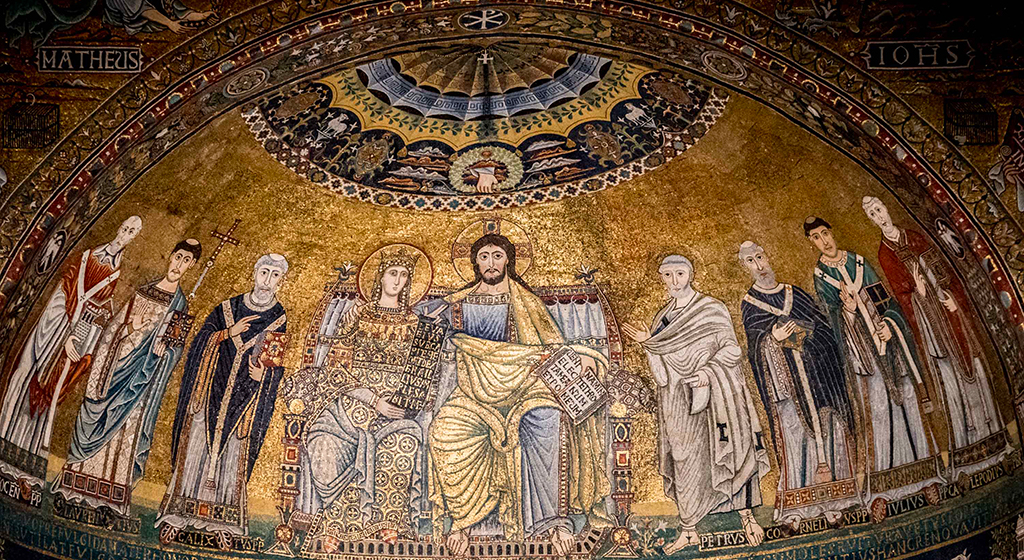Memory of the Church
Feast of the apostle Thomas. He confessed Jesus as his Lord and, according to tradition, witnessed him all the way to India.
Reading of the Word of God
Alleluia, alleluia, alleluia
I am the good shepherd,
my sheep listen to my voice,
and they become
one flock and one fold.
.
Alleluia, alleluia, alleluia
John 20,24-29
Thomas, called the Twin, who was one of the Twelve, was not with them when Jesus came. So the other disciples said to him, 'We have seen the Lord,' but he answered, 'Unless I can see the holes that the nails made in his hands and can put my finger into the holes they made, and unless I can put my hand into his side, I refuse to believe.' Eight days later the disciples were in the house again and Thomas was with them. The doors were closed, but Jesus came in and stood among them. 'Peace be with you,' he said. Then he spoke to Thomas, 'Put your finger here; look, here are my hands. Give me your hand; put it into my side. Do not be unbelieving any more but believe.' Thomas replied, 'My Lord and my God!' Jesus said to him: You believe because you can see me. Blessed are those who have not seen and yet believe.
Alleluia, alleluia, alleluia
I give you a new commandment,
that you love one another.
Alleluia, alleluia, alleluia
Today we celebrate the feast of St. Thomas, called Didymus (twin). The Gospel of John speaks of him several times in connection with some important moments in Jesus' life. Thomas was not a bad disciple; on the contrary he was generous. When Jesus wanted to go to Lazarus, sick, and there was a grave danger for the life of the Master, Thomas, on behalf of all the disciples, said, "Let's go and die with him" (Jn 11:6). He was very sure of himself, of his feelings, of his convictions, as is clear on the evening of Easter. To the other apostles who told him that he had seen the risen Lord, he replied with that sentence that has then become a symbol of incredulity: "Unless I see the mark of the nails in his hands, ... and my hand in his side, I will not believe." When we think over it, each of us is close to Thomas' attitude. We are sure of ourselves, of our feelings, and of our convictions. Thomas needs to meet the Lord again, to listen to him, to see him and even to touch him. And behold, Jesus returned again among the disciples and invites Thomas to touch his wounds. In front of that wounded body he exclaimed: "My Lord and my God!" Faced with the wounds of this world and the pain of each wounded man and woman, we are called to have Thomas' faith. Jesus, turning to him, and thinking also of all those who would follow, said: "Have you believed because you have seen me? Blessed are those who have not seen and yet have come to believe." It is the last beatitude of the Gospel. And it is bliss also for us, called to believe without seeing but touching the wounds of the Lord in the body of the poor.
